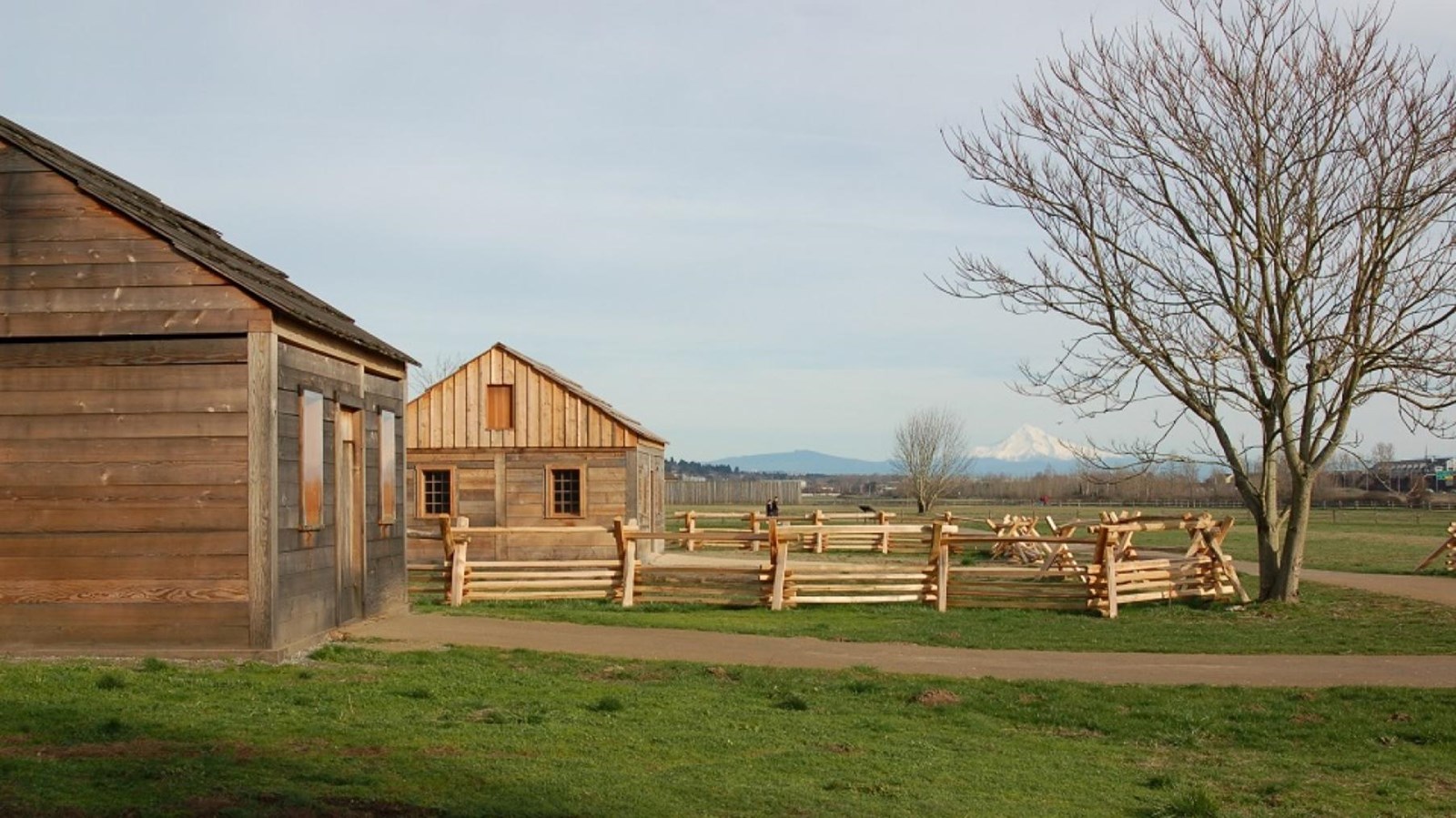Last updated: September 8, 2020
Place
The Fort Vancouver Village

NPS Photo
Accessible Sites, Historical/Interpretive Information/Exhibits
Established with the fort in 1829, the village was one of the largest settlements in the West during its time.
Housing the workers and their families, and the fur brigades when they returned from their expeditions, the population of the village exceeded 600 people during peak times. Company employees, their wives, and children supported the Fort's extensive operations including several hundred square miles of agricultural land, a shipyard, distillery, tannery, sawmill, gristmill, and dairies.
During the late 1840s and early 1850s, slowing returns from trapping and growing numbers of settlers led to a shift in focus from the fur brigades to land-based mercantile opportunities. With this change came a shift in the village activity and population. The numbers of Hawaiian employees increased, such that by the 1850s the village became known as "Kanaka Town," or "Kanaka Village," referring to the Hawaiian word for "person."
Today, the Land Bridge Trail in the western half of the national park passes through the location of the Village. Two Village houses have been reconstructed. While they are generally closed to the public except for special events, nearby outdoor exhibit panels help to interpret these buildings.